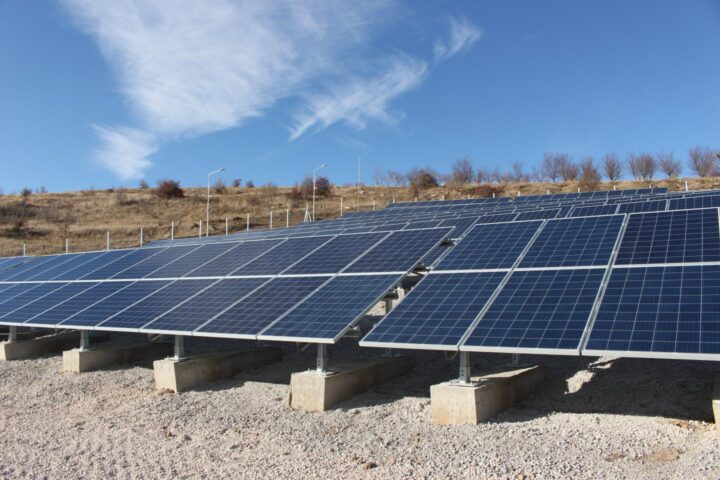The government is coming under attack from almost every corner for its decision to oblige fuel importers to increase biofuel in the fuel mix which is expected to shoot prices up by 5-6 cents a litre.
Energy Minister George Lakkotrypis issued a decree for fuel importers to put a higher percentage of biofuel in the mix for the country to meet its EU 2020 targets for 10% use of Renewable Energy Sources in transport.
Experts estimate that the price of petrol will rise by 2.5 cents per litre and diesel by 4 cents with excise duty, price increases are estimated to gradually rise to 6 cents per litre in 2020.
The Opposition, trade unions and the business world blame the government for not taking any action to increase RES in transport.
They accuse the administration of leaving things to the last minute, which forced Nicosia to roll over the cost to consumers through fuel to bring down CO2 emissions.
Talking to the Financial Mirror, Green MP Charalampos Theopemptou said that the government has practically done nothing to increase the contribution of RES to transport.
“Let us take things from the beginning. The government knew from the day they took over in 2013, that as of January 2020, Cyprus would be obligated to cover 10% of its energy needs for transport with RES,” Theopemptou.
“According to the Energy Minister, we are now at 5%, our estimates say 3%.”
The former Environmental Commissioner said that even with this painful consumers measure, the average annual energy content of conventional biofuels will amount to 7.3% of the total.
“But Cyprus needs to reach 10%. So, what will they do? The Minister confirmed they will have to cover the remaining 2.7% by buying rights to pollute from other countries that have conformed to the directives.”
Theopemptou is certain that the cost of buying these emission rights from the European Emissions market will mean additional costs which consumers will pay for one way or another.
He said that the government has done nothing to increase the use of RES or reduce emissions in transport or exhibited any interest in promoting public transport.
“Apart from renewing contracts for public buses, their answer to traffic problems is to build more roads,” said Theopemptou.
He that poor air quality due to CO2 emissions are responsible for two premature deaths in Cyprus a year.
“Green House gas emissions could be reduced by half if the government had taken simple measures such as restricting access of private vehicles to town centres and declaring residential areas as low emission zones”.
Also critical over the government’s decision to impose a last-minute increase of biofuel in petrol-based fuel products is the Cyprus Federation of Employers and Industrialists (OEB).
Bad for business
“All business logistics are based on energy costs. Issuing decrees, shooting up prices by 5-6 cents puts more pressure on businesses, already under strain,” argued Anthi Charalambous, Head of OEB’s Energy and Environment Service.
Charalambous said that the least the government could do is to absorb some of the cost.
She noted that OEB has repeatedly advised the government to introduce tax relaxations on biofuels imported to Cyprus.
“But the Finance Ministry said no…The European Union does not allow for state aid towards petrol companies.”
However, as she argued, Croatia has exempted biofuels from the special consumption tax, while another 13 EU states have in one way or another introduced tax relaxations for the use of biofuels.
Charalambous believes many Cypriot drivers will turn to cheaper petrol from the occupied north of the island which has no biofuel in it.
“So, introducing more biofuel in the mix, will not get us anywhere at the end of the day as cars will be producing the same amount of CO2 as before, or even more.”
She said the state has already lost €86 mln in taxes from drivers filling up in the north.
OEB expected that the government would have to turn to the biofuel solution as it did not set up an infrastructure that would allow Cyprus to adopt other alternatives.
“There are practically no charging points for electrical cars and no incentive plans that would push people to scrap their old petrol consuming car with an electric one.”
“Currently as we are hearing from private investors who are behind big RES projects, they are having difficulties in acquiring financing from Cyprus banks. Almost all big projects are at risk.”
Charalambous argued that most of the projects which will help Cyprus meet its EU 2030 targets lie with the private sector which should be facilitated not hindered.
She said the government should give investors guarantees which they can use to obtain financing from the banks.
Meanwhile, the government has argued that despite a rise in the price of petrol due to an increase of biofuels in the mix, Cyprus has cheaper petrol than most of its fellow EU member states.
Lakkotrypis told MPs that Cyprus is the fifth cheapest place in the EU to fill up.
According to the Energy Ministry, the main way to achieve securing a 10% of RES in transportation by the end of this year, is by increasing the levels of certified biofuels in the mix.
“Cyprus ranks 5th place among EU countries with the cheapest petrol, according to EU data…Cyprus ranks 12th among EU countries with the cheapest diesel,” said Lakkotrypis.
While outlining Cyprus’ commitments, Lakkotrypis said the main goal was to increase the share of RES to 13% of total energy consumption by 2020, a goal already achieved in 2018. Today’s share stands at 14%.
Regarding energy production, the Minister said that the indicative RES target was set at 16% by the end of 2020.
Latest data shows that Cyprus stands currently at 9.37% but the share is expected to rise to 19-20%.
When it comes to transportation and the 10% RES target by the end of 2020, Cyprus’ share is currently at 5%, with the decree issued by the Ministry expected to raise RES share to 7.3%.
“The government is now looking for ways to statistically reach these goals, by selling rights in areas where it is overperforming, and buying rights in areas where it faces some difficulties,” said Lakkotrypis.
This essentially confirms that Cyprus will be turning to the European Emissions Market to cover the remaining 2.7%.









